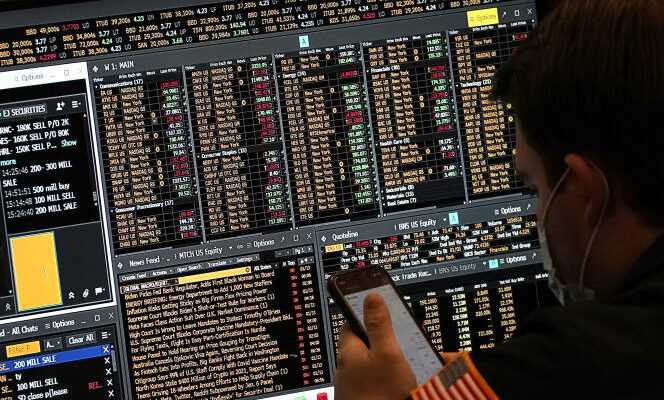The Fed gave, the Fed took back. In this period of bursting of the financial bubble on Wall Street, the remark applies perfectly to the SPACs, the special purpose acquisition companies, which continue to collapse on the stock market with the end of free money recorded by the American central bank. These companies were empty shells, listed on the stock exchange, and supposed to buy companies with promising potential with the money entrusted to them by investors. These SPACs were dubbed “blank checks” because investors did not know which company would be purchased.
The maneuver had the advantage of facilitating the target’s IPO, without going through the slow and protective course of traditional IPOs, and of cashing in a stock market gain more quickly. Alas, not everything went as planned, with the bursting of the SPAC bubble, in January 2021. The shares, which were worth 10 dollars (9.30 euros), soared… before falling collapse. This is the case of that of the financial loan company SoFi, which rose from 10 to 28 dollars in January 2021, and which is only worth 4.80.
Same rout for the company Hims, which allows Viagra to be ordered on the Internet, the value of which fell from 25 to 3.50 dollars after hitting a low of 2.72 dollars in early May. We can also cite WeWork, a shared office company, which went public in the fall of 2021, which lost more than 30% of its value, while the media group Buzzfeed fell by 55%. The SPAK ETF, the investment fund that buys all SPACs in the United States, has seen its price fall by three since its peak in January 2021. Clearly, savers who jumped on the bandwagon, during the IPO, lost their shirts.
Everyone opens their umbrella
From now on, it is the promoters of the 600 SPACs in search of investment who risk losing the 5 million to 10 million dollars in commissions that they are supposed to earn during this type of operation. Explanation: they generally have a period of two years to invest the funds entrusted to them, otherwise they must return them. The maximum amounts were collected at the beginning of 2021: according to the Wall Street Journal, 280 vehicles of this type must invest before the first quarter of 2023.
Except that it’s a disaster: stock market valuations are plummeting, unlisted companies do not want to sell themselves, and, to save their commission, SPAC managers risk rushing into poor quality companies. Admittedly, these companies are paying less today, but they have much less promising prospects, with the disruption of production chains, inflation and labor shortages. Moreover, a parallel market, that of the classic IPOs, is almost frozen, after the fireworks of the beginning of 2021.
You have 39.21% of this article left to read. The following is for subscribers only.
